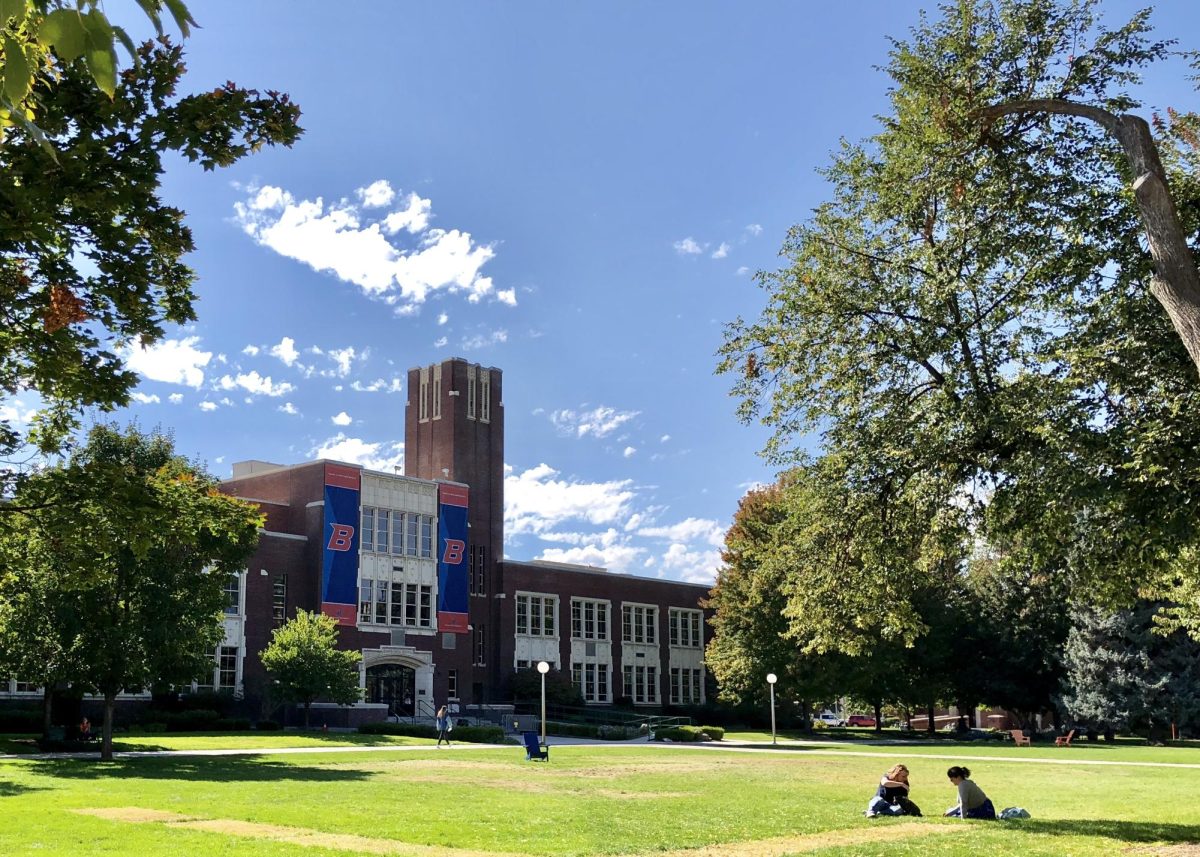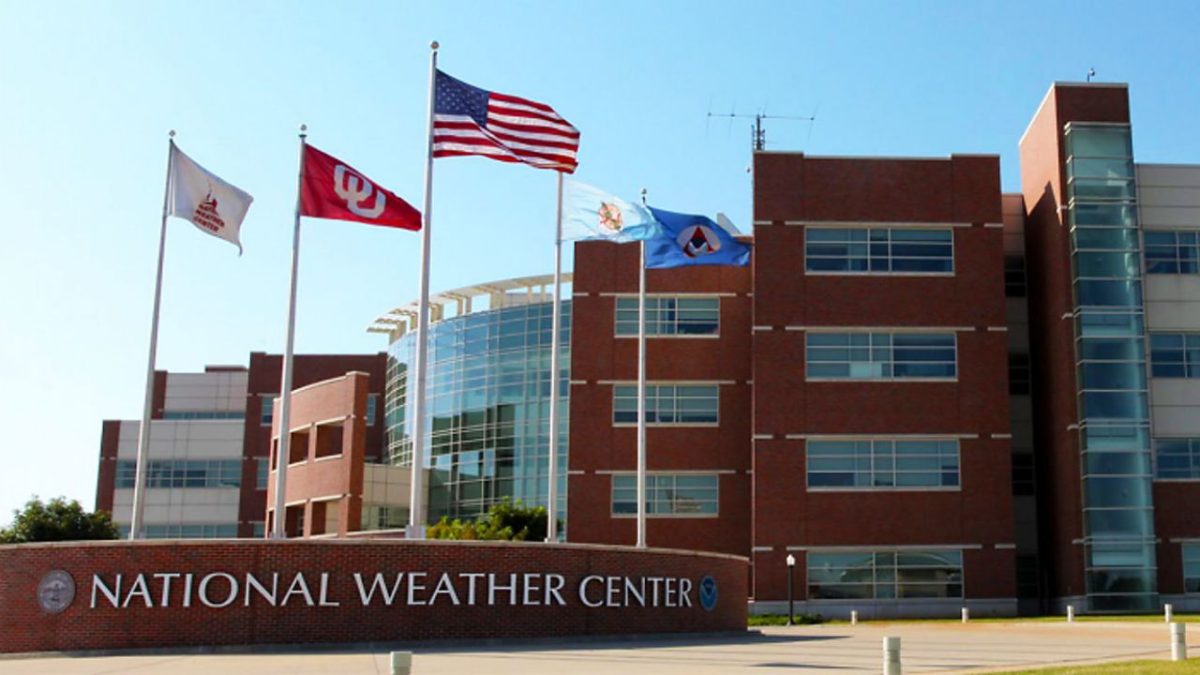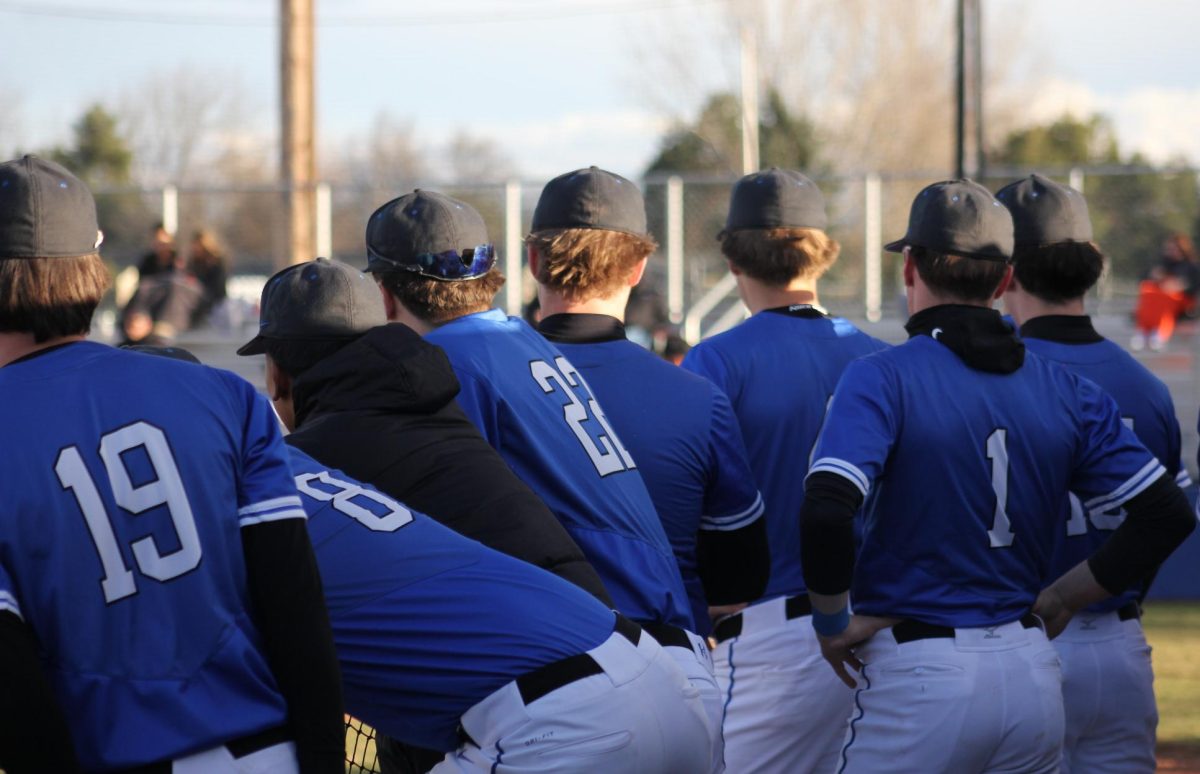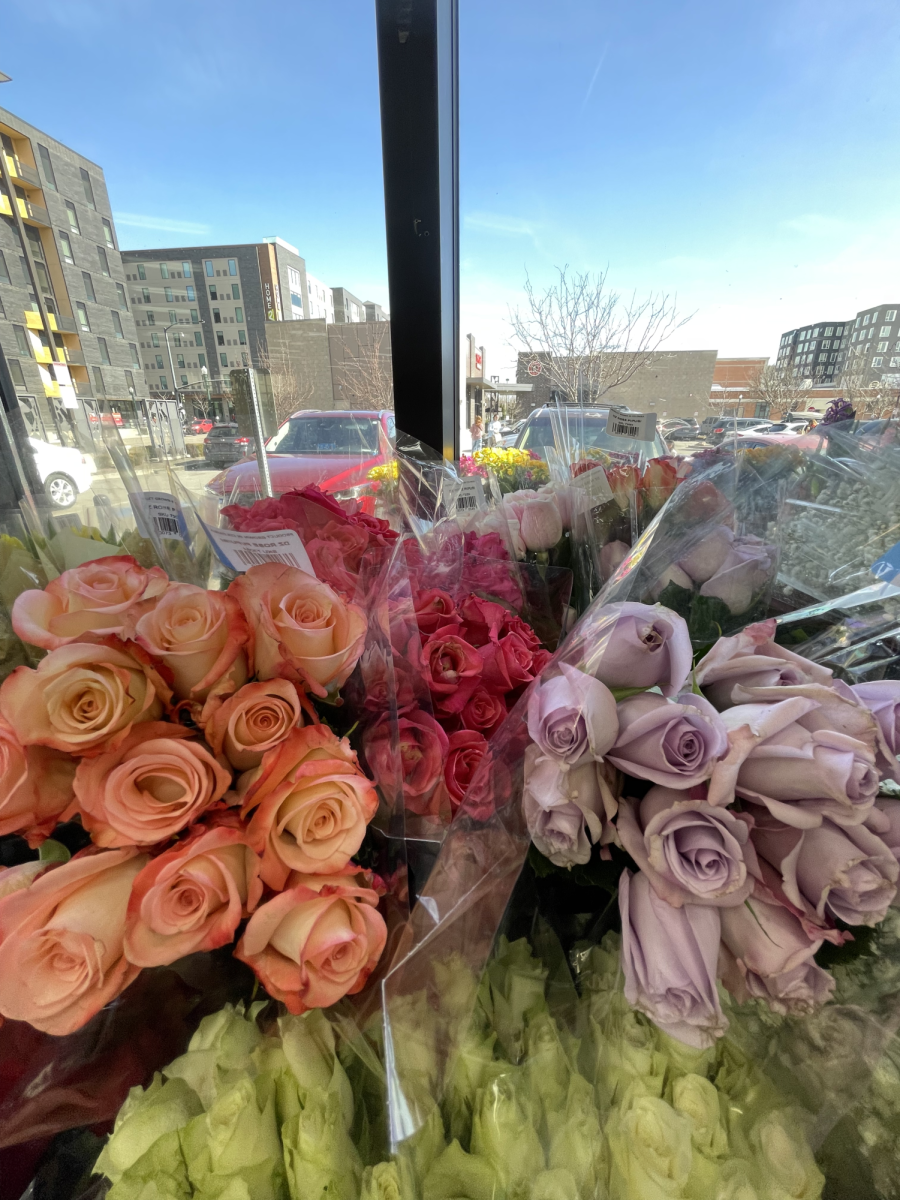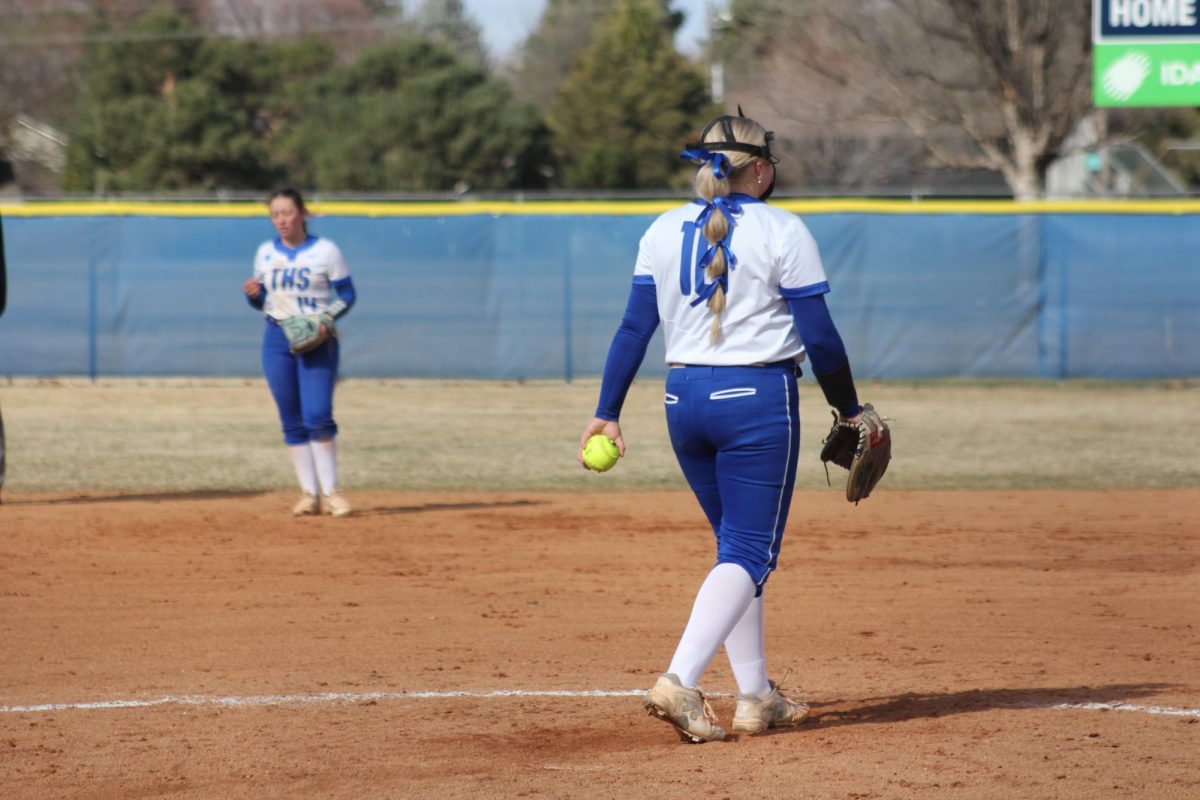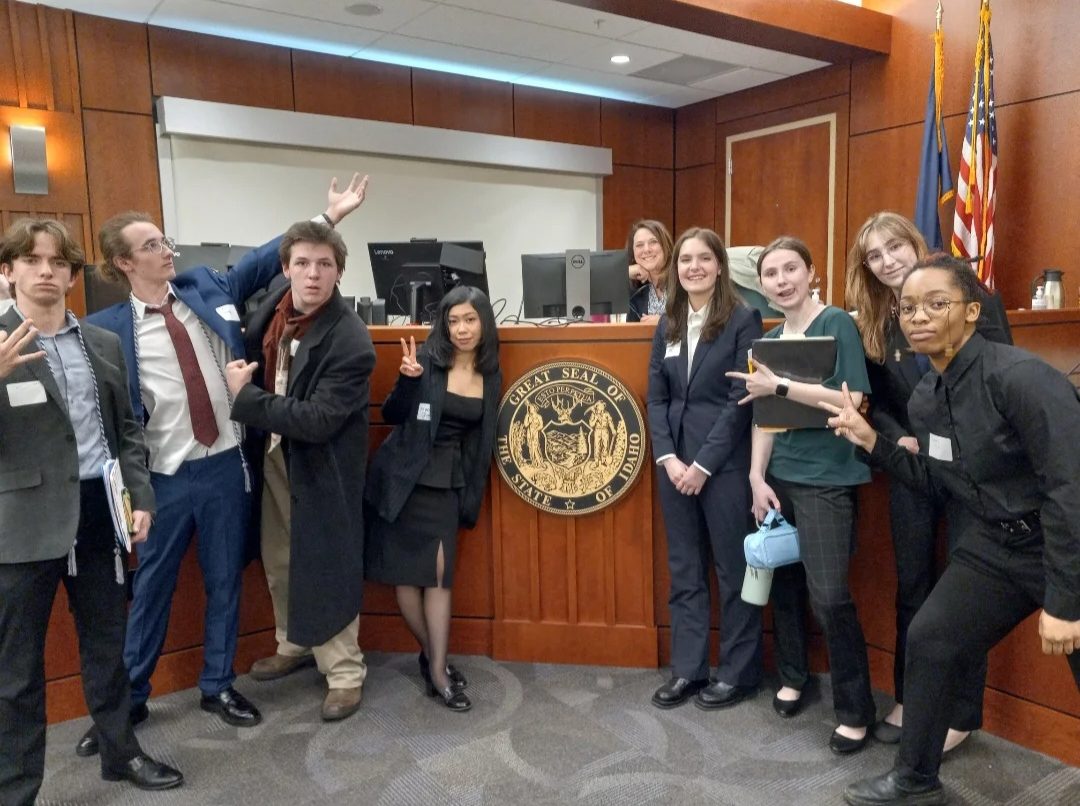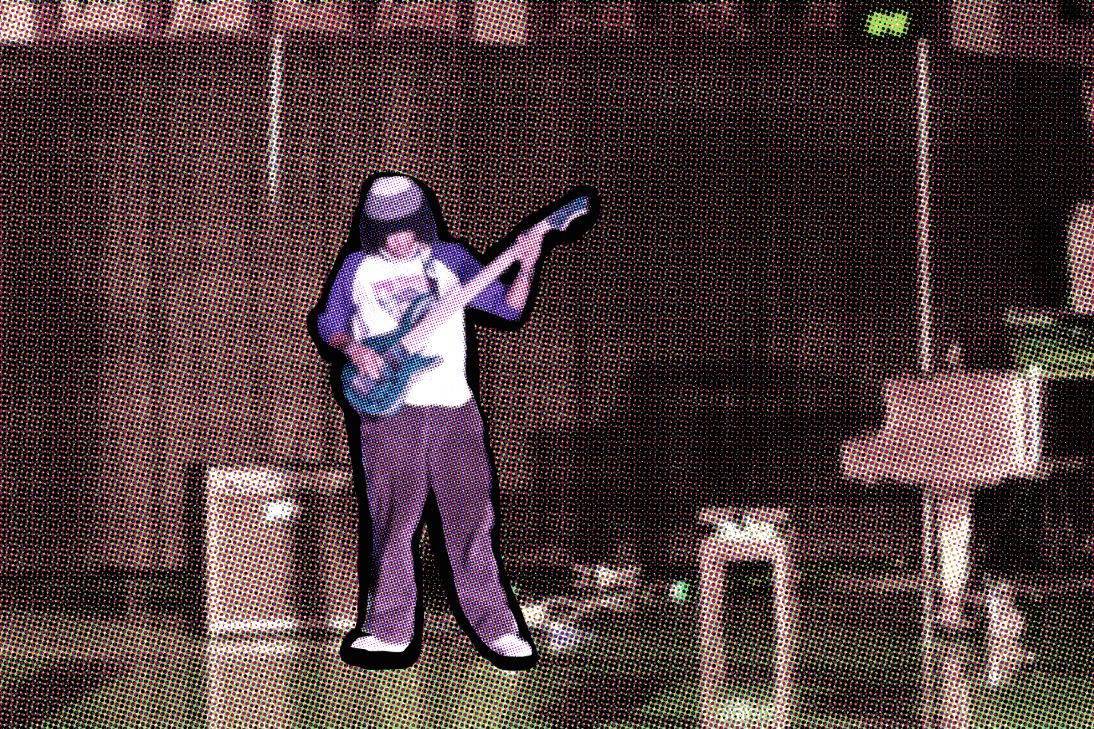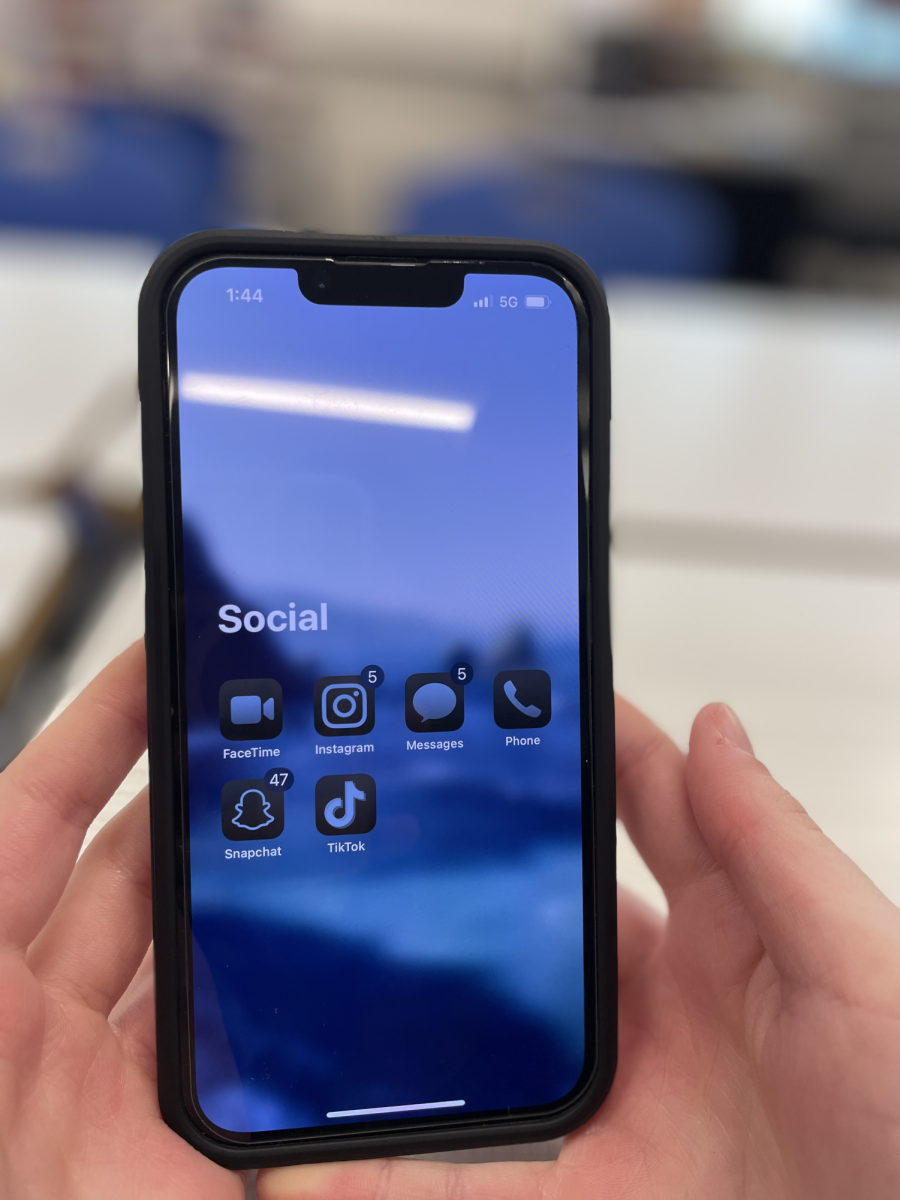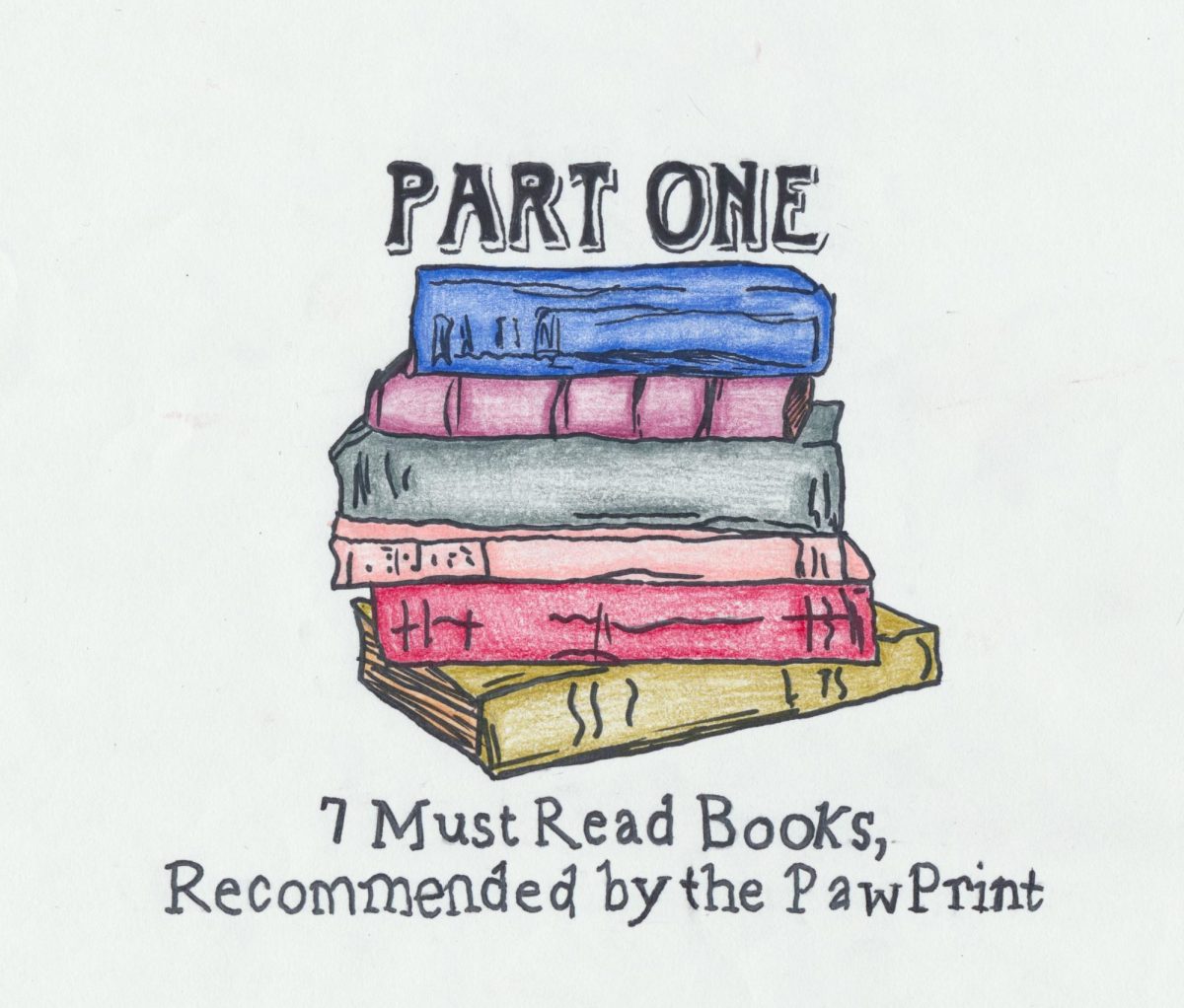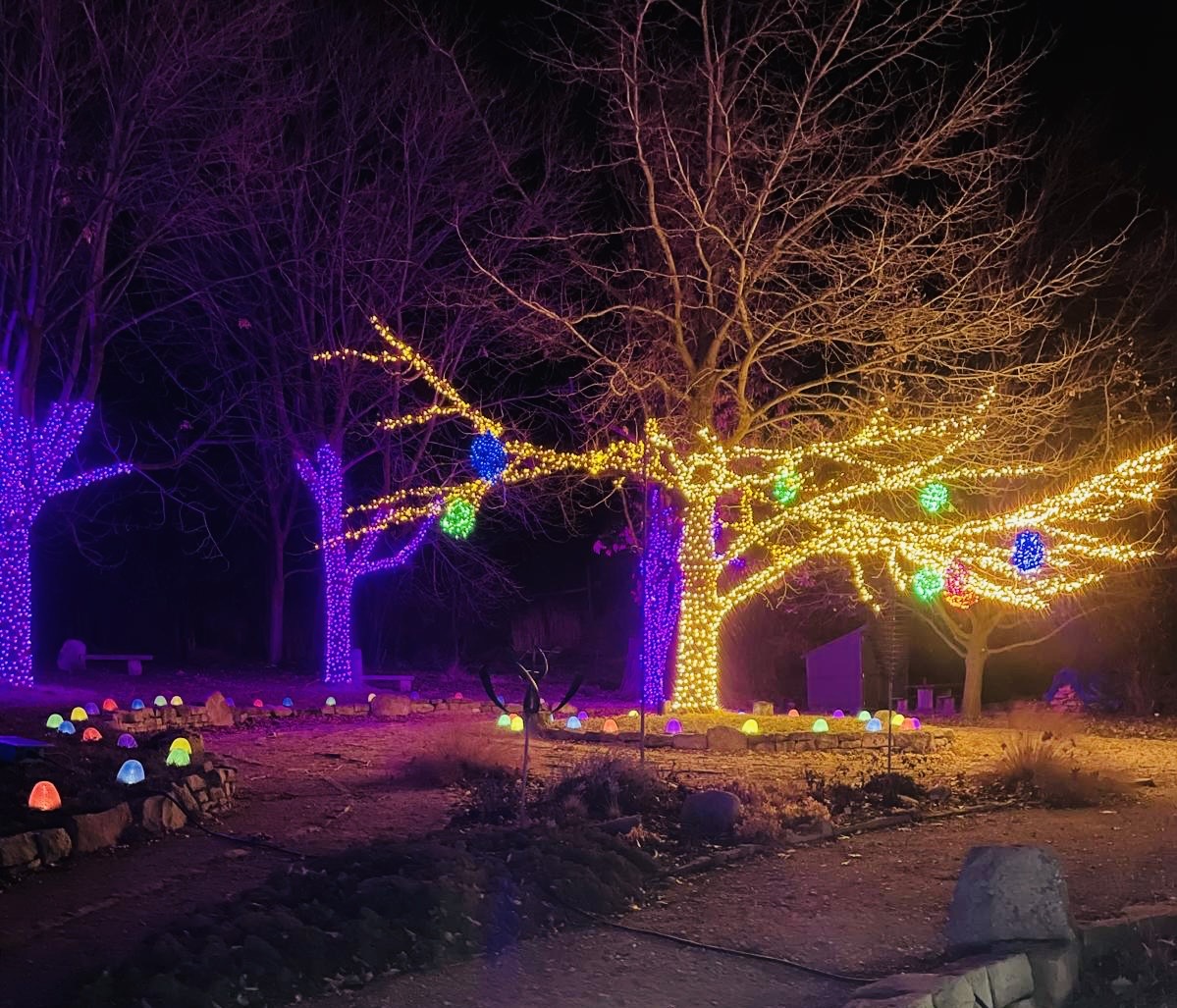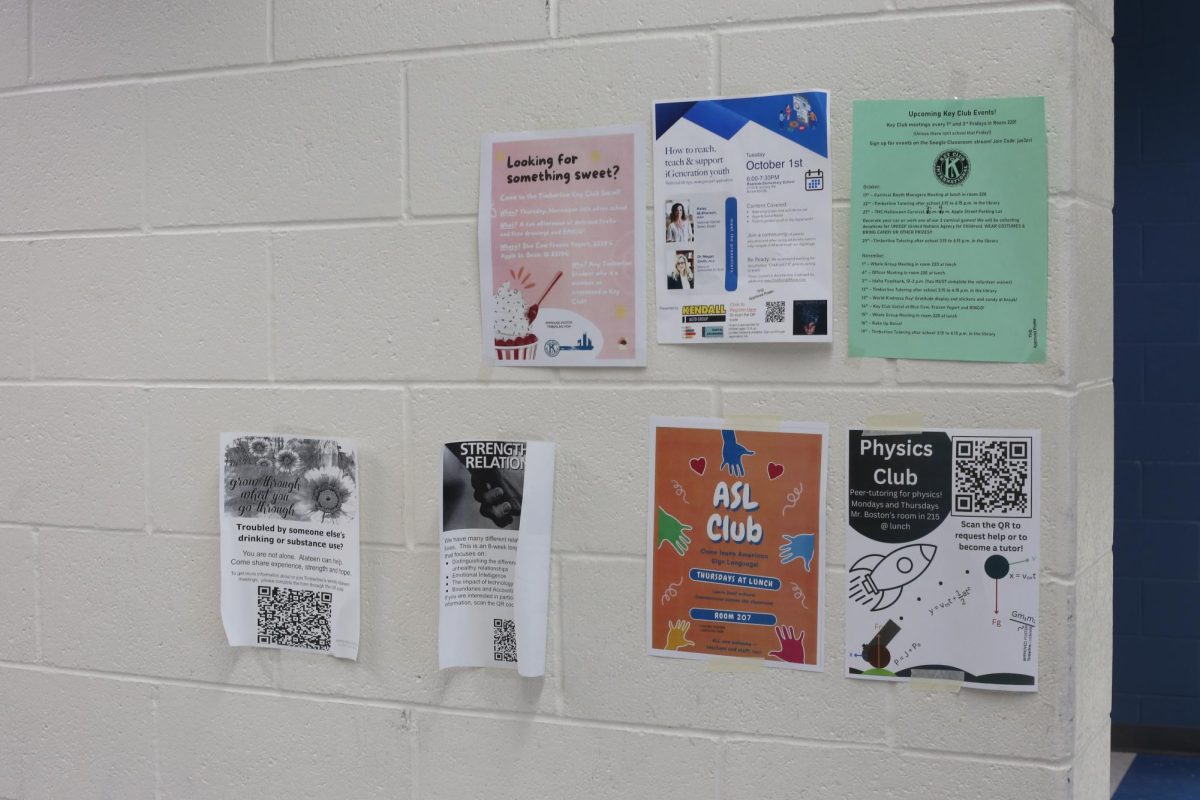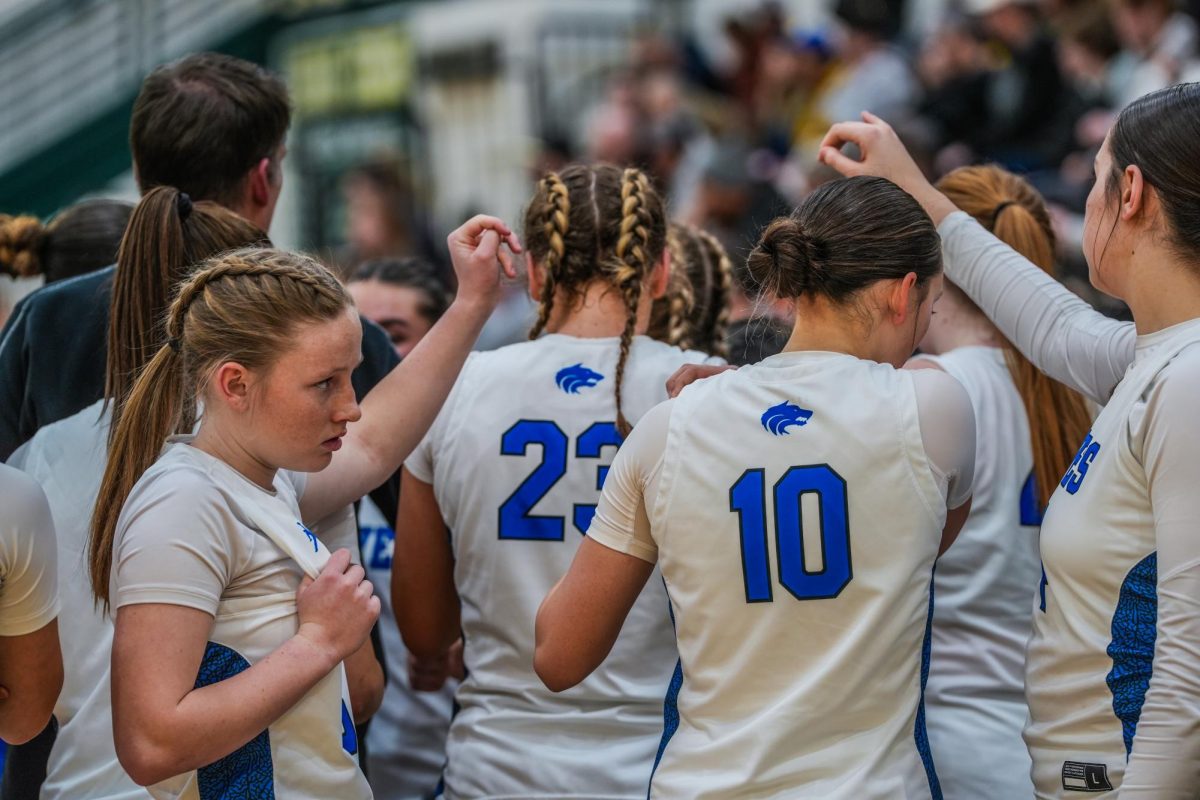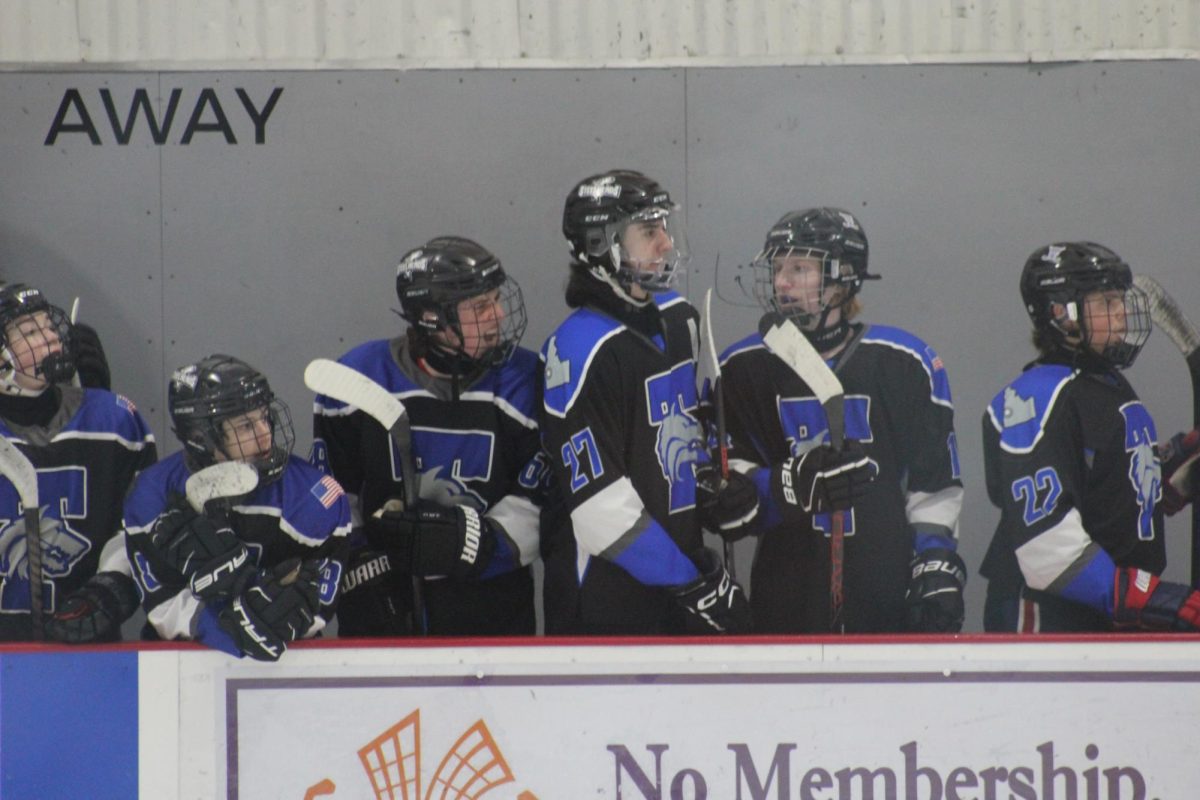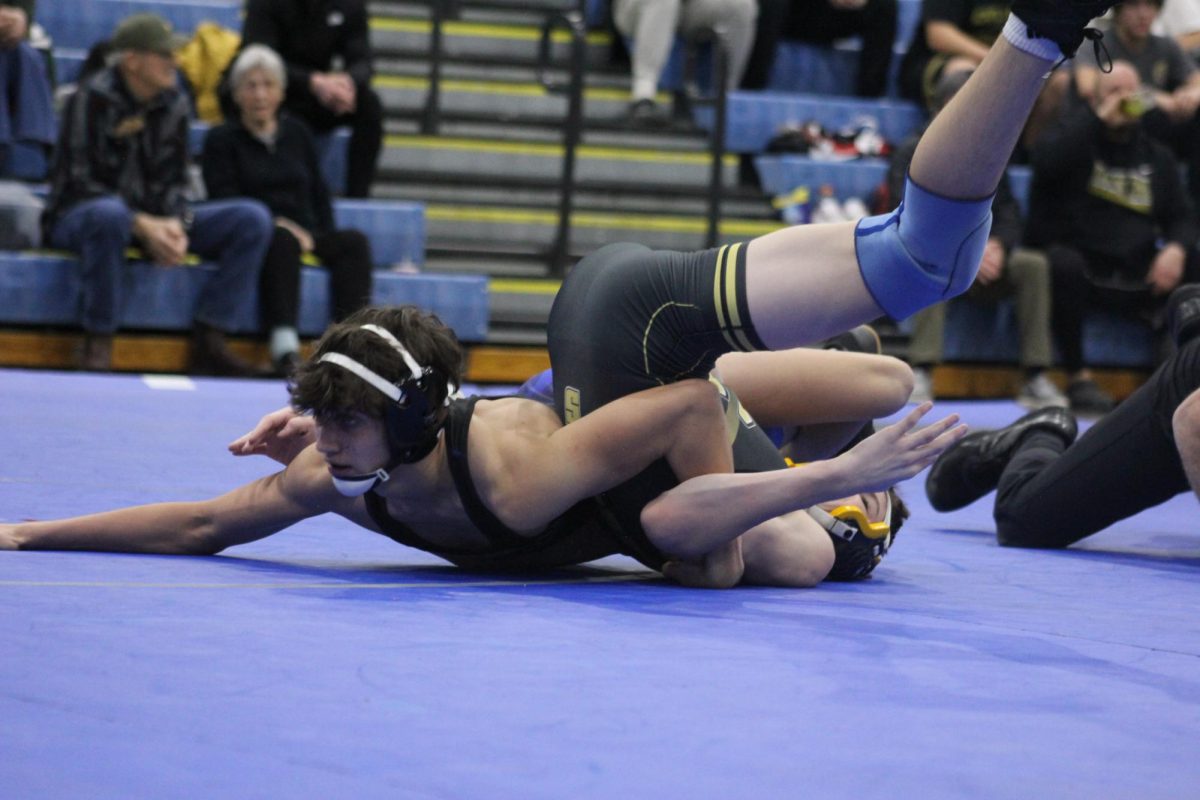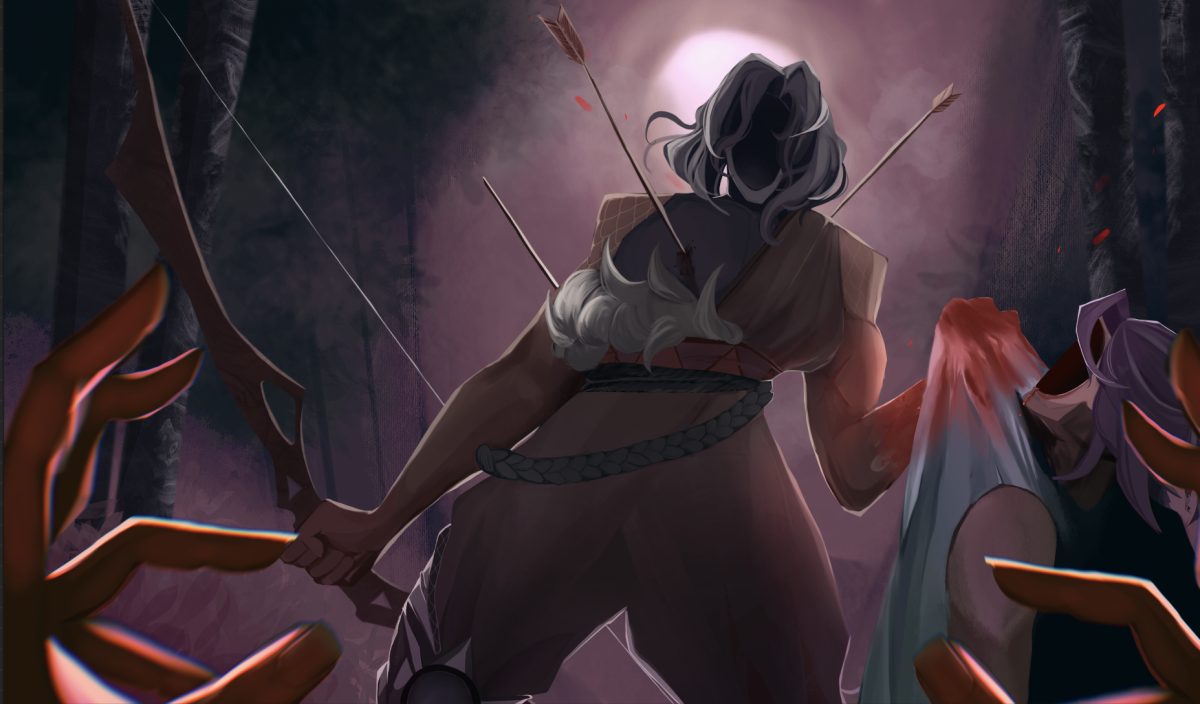A History Teacher for the Books
Photo by: Zoey Jares
Mr. Crisp stands in his classroom sporting a Hawaiian shirt, along with his massive cardboard cutout of former President Franklin D. Roosevelt.
January 21, 2022
As you wander through the halls of Timberline, you may hear the murmurs of students, or the clacking of keyboards, perhaps even the whirring of a pottery wheel. But you should consider yourself lucky to stumble upon a classroom discussing a blend of culture and art and American history. In fact, if you chose to peer your head in and have a listen, you would learn that the discussion was being held in a bright room, containing a wall bedazzled with license plates from all 50 states. And as you looked around, you would notice that the discussion was being guided by a man wearing a vibrant Hawaiian t-shirt. Fortunately, you have just stumbled upon a very special teacher by the name of Dave Crisp, and his classes will not be ones you’re soon to forget.
Mr. Crisp started his career in the Boise School District a little over 34 years ago at Borah High School, beginning his tenure by teaching Spanish for a single semester. After that, he transitioned to teach mostly English at both East and Les Bois Junior Highs. Since then, he has spent 24 years at Timberline, teaching English for the first 10, and transitioning to history for the remaining 14. Actually, Mr. Crisp has always had a passion for history: “You know how we like to make fun of dorks, or intellectual kids or whatever – I was one of those because I was learning to read at around age 4, and choosing to read American civil war books.”
But when Mr. Crisp transitioned to being a history teacher, he felt that there was a key part of America’s story that was being neglected: the humanities. Wikipedia defines the humanities as “academic disciplines that study aspects of human society and culture”, and Mr. Crisp’s choice of words is similar. It is certainly an interesting way of looking at history, but since the introduction of AP classes in the Boise School District during the late 80’s and early 90’s, humanities classes were no longer available. In response, Mr. Crisp made it a goal of his to bring them back, and a few years ago, he made that happen. Since then, the class has been a hit, with students only being able to relish it for a single semester. The curriculum is entirely discussion-based, with a focus on the history and culture of the 1920’s and 1960’s in America. The class has truly been a hit, with students eager to partake in the low-stress and critical thinking environment. “I’ve always believed that if you want to understand anything, the deepest understanding will come from a humanities approach.” Mr. Crisp explained. “I want kids to understand the connection from yesterday to today.”
This year has been bittersweet though, as this is Mr. Crisp’s final year teaching. While most are either ecstatic or dreading to enter retirement, Mr. Crisp describes it more akin to a “farewell tour.” After all, he is teaching his favorite topics and interacting with his students for the last time. So while the year has been emotional, it has also been rewarding. When reflecting on his experience at Timberline he only has positive things to say. “Timberline is a very special place, and I don’t know that everyone always appreciates that,” he said. “I think you’d be hard pressed to go many places in the United States, into any classroom, and see what I see every single day.”
As Mr. Crisp’s final semester of teaching comes to an end, we should all find time to thank him for the impact that he has made on our school. Countless relationships have been formed that will last far beyond his teaching career, as well as a lifetime of learners fostered. Mr. Crisp has formed bonds with students and fellow staff members that will never be forgotten. When asked about parting ways with Timberline, there seemed to more gratitude than sadness: “I’ve always joked around with people that when I die, my spirit may be here at Timberline forever, because this is the one place that is kind of home.”
So thank you, Mr. Crisp, for your bright spirit and seemingly infinite number of Hawaiian t-shirts. Timberline High school has truly cherished your presence.
